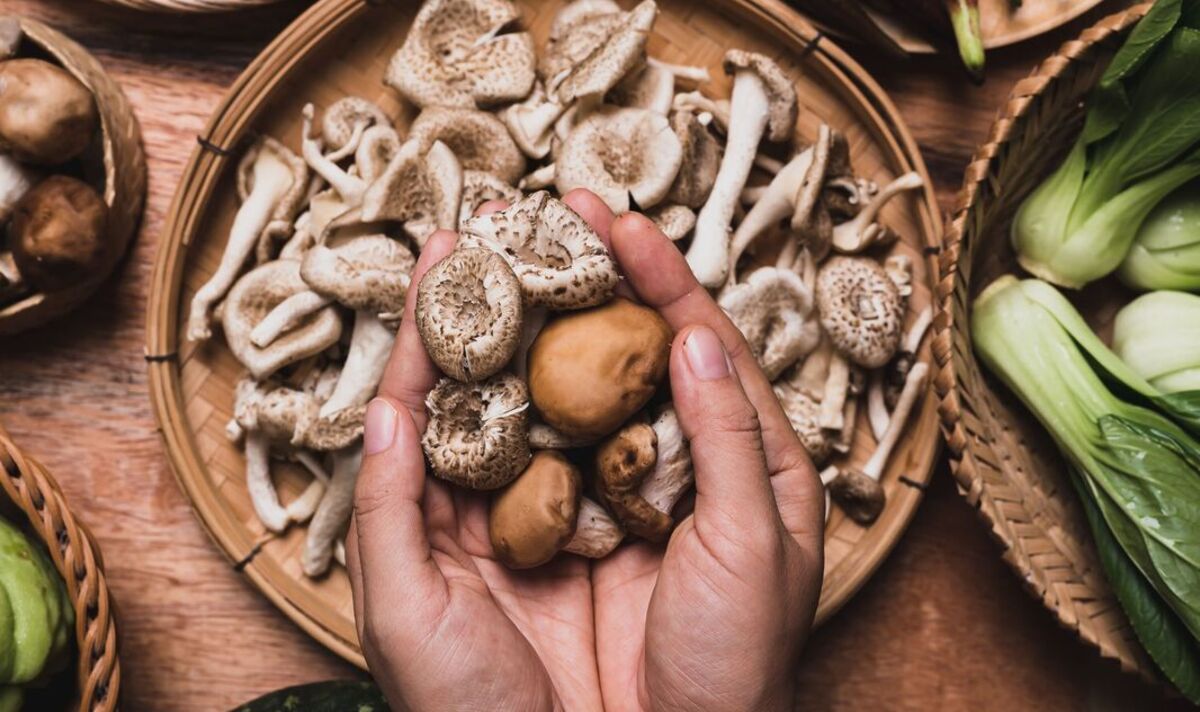Alzheimers Research UK explain 'what is dementia?'
We use your sign-up to provide content in ways you’ve consented to and to improve our understanding of you. This may include adverts from us and 3rd parties based on our understanding. You can unsubscribe at any time. More info
Dementia rates are set to almost triple in the coming decades. Despite the dismal forecasts, there are interventions emerging aimed at reversing this trend. A new study has identified a mushroom that could help stave off the mind-robbing condition.
Characterised by its mildly sweet taste and tender texture, Hericium erinaceus, or lion’s mane mushroom, offers more than a kick of flavour.
Grown on trunks of dead hardwood, the fungus is an edible mushroom with a long history in traditional Chinese medicine.
What’s more, new research, published in the Journal of Neurochemistry, suggests the tufty and beard-like mushroom could “protect” your brain against Alzheimer’s disease.
Researchers from The University of Queensland have discovered new active compounds that can enhance your memory hidden in the plant-based food.
READ MORE: Half of young people at ‘increased risk’ of ‘key’ vitamin deficiency – diet could be cause

Professor Frederic Meunier, from the Queensland Brain Institute, said: “Extracts from these so-called ‘lion’s mane’ mushrooms have been used in traditional medicine in Asian countries for centuries, but we wanted to scientifically determine their potential effect on brain cells.
“Pre-clinical testing found the lion’s mane mushroom had a significant impact on the growth of brain cells and improving memory.
“Laboratory tests measured the neurotrophic effects of compounds isolated from Hericium erinaceus on cultured brain cells, and surprisingly we found that the active compounds promote neuron projections, extending and connecting to other neurons.”
The research team found that the mushroom extract largely increased the size of growth cones.
Growth cones are particularly important for brain cells’ ability to sense their environment and establish new connections with other neurons in your brain.
Co-author Dr Ramon Martinez-Marmol said these findings had implications that could treat and “protect” against neurodegenerative cognitive disorders such as Alzheimer’s disease.
Alzheimer’s disease is the most common type of dementia, targeting around six in every 10 people with the brain condition in the UK.
“Our idea was to identify bioactive compounds from natural sources that could reach the brain and regulate the growth of neurons, resulting in improved memory formation,” Dr Martinez-Marmol said.
READ MORE: Excess deaths mystery ‘needs solving urgently’, says ONS

While the findings sound promising, the pre-clinical study only used animals, meaning that more research is currently needed to draw a firm conclusion.
However, this isn’t the only pre-clinical study, highlighting the positive effects of the fungus on the brain.
Other research papers also suggested that the seafood-like mushrooms may provide benefits to individuals with Alzheimer’s disease.
Furthermore, studies on animals also found that the mushrooms were able to protect against oxidative stress and inflammation, while benefiting blood sugar levels, blood lipids and cholesterol.

What are the symptoms of Alzheimer’s disease?
Worryingly, the NHS explains that warning signs of Alzheimer’s disease are often confused with other conditions and may initially be put down to old age.
This makes symptom awareness front and centre, with the early signs including:
- Forgetting about recent conversations or events
- Misplacing items
- Forgetting the names of places and objects
- Having trouble thinking of the right word
- Asking questions repetitively
- Showing poor judgement or finding it harder to make decisions
- Becoming less flexible and more hesitant to try new things.
The health service recommends seeing a GP if you’re worried about your memory or think you may have dementia.
Source: Read Full Article
